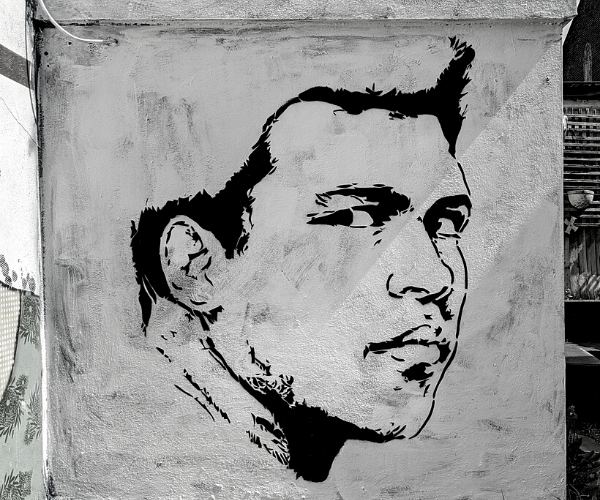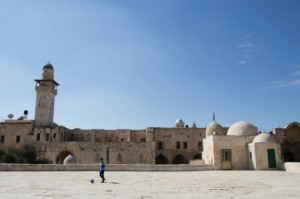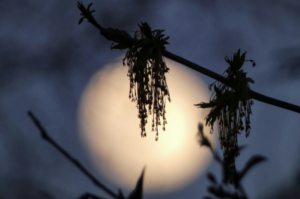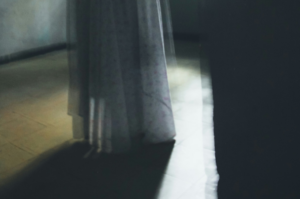
Cassius Clay was on my mind all night. Even now in the morning, as I hurried home from my grandmother’s house, he was circling Oscar Bonavena, stinging his face with left-right combinations. Ping-ping. zing -zing. Bonavena lunged forward and attacked the air with sledge hammers for fists– vaap ! vaap! Clay called from behind him, Hey, bear, I’m over here! Well, at least that was Uncle Kandindi’s rendition, a magical drama woven – I would later learn – from snippets of radio and newspaper news, and anecdotes of moments from different Ali fights. Kandindi was in his mid-teenage years, the last born in mother’s family. I was nine.
My maternal grandmother’s house was separated from my home by a 2-kilometre stretch of dirt road. Normally, while trekking along this tranquil stretch of road, stories, scenes and characters from books I had read would come alive in my imagination. Like the story of the tailor who killed seven flies and went around the village crying out, ‘seven-at-one-blow’, and the villagers thought he had slain seven giants with a single blow… The Famous Five creeping along a dark tunnel inside a lighthouse up on a cliff… Or Mwangi Cowboy – the sly hero of the stories my father told us – embroiled in yet another drama…Sometimes I mimicked my father reading to us from an abridged version of Treasure Island : Fifteen-men-on-a-dead-man’s-chest -yo-ho-ho-and-a-bottle-of-rum… Or from The Black Arrow: Think no more of Ellis Duckworth… the black arrow shall fly no more… And thus lost in my imagination, I would find myself at my destination.
But this morning, Cassius Clay was circling Bonavena in my mind and I was anxious to get home. Could such a man exist; a man who was so fast, one moment he was stinging your face and the next he was taunting you from a shadowy place behind you? Uncle Kandindi was an oracle of truth and wisdom. And yet now I was impatient to get home to consult a higher authority on the existence of this phantom.
Ngugi wa Thiongo was in his home study. I gently pushed the door to the study open and peered inside at the figure in a polo-necked shirt bent over a wooden desk. Up on one wall, hung Sonia Sanchez’s Poem at Thirty printed against a lithograph of her likeness. Its first line in huge bold letters jumped out at you: It is midnight, no magical bewitching hour for me…..
The floor beside the desk was littered with ruffled pieces of paper.
“Father…,” I called, “I want to ask you something.”
“Yes…?” my father said, half turning in his chair to look at me. There was no hint of exasperation at the interruption. When many years later I, too, became a writer, I would know how costly an interruption is. A writer struggles to get into the right frame of mind. Then he begins coaxing the plot lines, images and descriptions lurking in the shadows of his imagination to reveal themselves.
Just one more mental push and they will be exposed to the full glare of the mind’s inner eye. In the meantime, a gambler’s thrill of anticipation niggles inside him. Then at a single disturbance, all withdraw back into the shadows. However, even coaxing these narrative devices into the glade of the imagination is just half the struggle. The next battle is to put them on paper or screen. The carnage of ruffled papers beside my father’s desk spoke of the cruelty of this struggle.
“Is Cassius Clay a real person?” I asked.
My father liked being asked questions. As a small boy trying to make sense of the contradictions and mysteries around me, I had asked him about anything and everything. What was the most efficacious method to ward off Wanjiru wa Kweru, an infamous ghost who snacked on children? Would Mwangi Cowboy dare walk in nearby Ngubi Forest at midnight where and when it was believed demons congregated for a feast? Might Good Wallace, his elder brother and ex-Mau Mau guerilla, still have a gun I could borrow to shoot birds? Who could wrestle the other to the ground – Jomo Kenyatta or Dedan Kimathi ? Why this and why that…
But I had never seen him so pleased by a question. He let go of his biro pen and turned his chair to now fully face me.
“Ah, Muhammad Ali..,” he said, leaning back into his chair.
In that and subsequent sessions, I would learn about the triumphs, trials and tribulations of Ali. There was a moral of the Ali drama my father kept coming back to: Never lose hope, no matter what. Even in defeat, my father said, Ali found inspiration. After losing to Norton, the headline of an article wondered whether the butterfly had lost its wings and the bee its sting. Ali cut out the heading and pasted it up on the wall of his gym to remind himself the butterfly must get back its wings and the bee its sting.
But when Uncle Kandindi took my siblings and me to see a recording of the Rumble in the Jungle in Nairobi, my first time ever to see Ali ‘live’ and in action, the butterfly wings had been converted into the deceptive plough shares of the ‘rope-a- dope’. The sting, however, was swelling up Foreman’s face. Ping-ping, zing-zing. The crowd in the cinema theatre would explode in applause. My sister, Ngina, not usually given to flamboyance, would be on her feet, throwing jabs that came just short of a bald head in the seat in front of her. When Foreman fell, there was pandemonium in the hall even though the outcome had been known for months. We were shouting, together with the people in the stadium in Kinshasa, ‘Ali, boma-ye, Ali, boma-ye.’
Ali fever gripped my school as it did the world. Me and another boy wrapped pullovers around our hands to mimic boxing gloves. I was Ali, of course, and he, rather sullenly, agreed to play Foreman. We danced around each other feinting this and that way, throwing light punches. A crowd of boys gathered around us. They started chanting, Ali, boma-ye, Ali, boma-ye. I danced with more urgency, flicking out jabs that stopped just short of my opponent’s face. From the corner of my eye I saw the love of my life or, more likely, death, given how faint I would feel in her proximity. I preferred to love her – though she would never know of my love – from a safe distance. But today I was Ali and my knees and breathing were strong in her presence, and my heart was not bursting at the seams. She and her girl crew took in the silliness for a few seconds then took off in loud giggles.
***
The Rumble in the Jungle, I thought years later, evoked many historical ironies. Descendents of slaves, transported across the Middle Passage in dark pestilential bowels of ships, chained to the floor boards, had returned to Africa in magnificent glory. They had returned to a land where descendents of those who had sold them into slavery now lived in the captivity of poverty and Mobutu’s terror.
The fight was also a continuation of the history of black insurrection against imperialism. Descendents of the children whose hands King Leopold’s functionaries had chopped off as punishment to their parents had staged a wondrous event in a country free from colonial rule. Their chant –Ali, boma-ye – was not personal to Foreman. The chant was a middle finger at the ideology underpinning imperialism.
The fight afforded, too, a conversation between Africans and black Americans, not in the confines of conference halls where the ideological equivalent of the moral police waits to pounce on ideological heretics, but in the freeness of a carnival atmosphere. There were moments of mutual intelligibility, and others when meaning, of verbal and non-verbal language, was lost in translation.
They looked at each across the chasm of 400 years of history, and they were intrigued by what each had become, and they learned and unlearned things about each other.
They also saw things in and about the other that triggered self-revelation. On the flight to Zaire, Ali was in awe of the all-African crew of Air Zaire. He shrugged his shoulders as if shaking off a weight and remarked, “I’m free, I’m free”. He had shaken off the pejorative representation of Africans in Western culture which affected – at a subconscious level – the self-image of black Americans.
And for the Africans, being in Ali’s presence sprung them from the jail of their world and transported them to one of endless possibilities. Their rhythmic cries of “Ali, Ali” whenever they saw him empowered Ali’s sense of belonging, yes, but it also stirred hope in them; it rekindled belief in themselves which had been crushed by Mobutu’s dictatorship.
The Africans and African-Americans also acknowledged – explicitly and implicitly – their historical brotherhood but also their cultural difference, and the potential for animosity and conflict. A member of the Black Panther movement exiled in Cuba conceded, near the end of his life, this cultural difference, saying that, although he had lived among Cuban blacks for years, he always felt different and had always missed the “body language of black Americans”. Another member of the radical group exiled in Tanzania for decades admitted to Christopher Goffard, a Los Angeles Times reporter, that there was always a “feeling of not being completely part of this culture. I know I am of a different tribe.”
Finally, the fight allowed a moment for celebration of black artistic expression. At the Zaire 74 festival before the fight, James Brown’s pent -up energy of love exploded into compelling sound and rhythm. BB King’s wails reached back in time, so that if you closed your eyes, you were engulfed in the mournful atmospherics of a plantation deep in the American south. Miriam Makeba, once married to a Black Panther and a panther in her own right, opened her eyes wide and made chants and cast a spell. And everyone danced to soul, and to blues, and to Sophiatown jazz. The communalism on the dance floor harked back to a time when we all gathered in the village square to dance naked under the moonlight.
Afterwards, when the revellers went to bed and it was that time of night when Mara, the man in the Kikuyu proverb, woke up to go and throw away his mother, River Congo’s murmur floated on the night. And when – like Langston Hughes – they were lulled to sleep by the murmur, they dreamt the dream Africa dreams; of a time of peace and freedom and plentiful harvests. In the morning glare of reality, they felt the ache of Africa’s lost promise.
Ali knocking out Foreman completed a journey that folklore, not history, could anticipate. Before the fight, Ali, on his morning jog, had detoured into village paths. Children, barefoot, and giddy with excitement, followed him. He stopped to look at chalk drawings of himself and Foreman on the walls of mud shacks. The figures were two-dimensional and the heads were bigger than the bodies. Foreman was on the floor, looking up at Ali standing over him with his arms raised. “Ali, boma-ye”, a crooked caption declared. Ali was moved. Here on the mud wall of a shack in a god and Mobutu-forsaken village, he had come face-to-face with love, or with faith in an idea he had come to represent; that if you honed your skills you could remake yourself in the image of your dreams. Or perhaps he had come face-to-face with his destiny foretold.
In the documentary ‘When We Were Kings’, Norman Mailer describes the mood in Ali’s dressing room on the night of the fight as funereal. Then Ali became, Mailer narrates, suddenly energized and said to his handlers in the room, “We are gonna dance tonight… we are gonna dance and dance and dance”. He knew he had to go and fulfill his destiny.
***
On a December night in 1977 – at the hour when Mara – whom we have met… well, at least in spirit – sneaked out to go and throw away his mother, Kenya’s dreaded secret police paid a visit to our home. Their knock on the door had left me half awake. I heard muffled voices. I heard a procession of footsteps making its way to my father’s study where, years earlier, he had drawn open curtains to a real-life hero in a real-life drama. Then I heard the voices out in the yard. My mother woke me up from my half dream. “They are taking him away,” she whispered in a shaky voice. In Petals of Blood, Akinyi wakes up to see police taking away Karega because of his political beliefs. Had my father foretold his destiny? My mother and I looked out through the window. Armed policemen and police cars were shrouded in the moonlight. I was fearful but also angry. “Why are they arresting him like a thief?” I asked. My mother did not answer. And then the procession of cars drove away. We stood together in the silence of the night, peering out of the window at shadows cast by the moonlight.
I Write What I like, a collection of writing by Steve Biko, another real-life hero in a real-life horror drama, recounts an exchange he had with a white judge during a trial. The judge asked him to name an independent African country with a functioning democracy. Biko gave the example of Kenya. What about the murder of Odinga ? pursued the judge. Biko corrected him; the person murdered by the government was JM Kariuki.
JM’s mutilated body was found in a thicket in the Ngong Hills, near where Karen Blixen once had her coffee plantation. Hyenas meant to “disappear” his body disdained it because acid had been poured on it to obliterate its identity. JM’s crime was his critique that government had betrayed its independence promise of freedom and equity. Kenya, he said, had become a country of “Ten millionaires and ten million beggars”.
Oginga Odinga had himself been jailed without trial, proving the thesis of his book, “Not Yet Uhuru”. Years later, purpose-built torture chambers were constructed at Nyayo House in Nairobi, where tens of perceived and real enemies of the state would undergo horrendous torture. Two Weeks in Hell, a prison memoir of Professor Ngotho wa Kariuki narrates the elaborate torture methods used by the secret police to extract confessions. Africa had heeded Nkrumah’s injunction: “Seek ye first the political kingdom and all else shall be added unto you”. What followed – from Nkrumah’s Ghana to Kenyatta’s Kenya, from Mobutu’s Zaire to Sekou Toure’s Guinea – was a great weeping and gnashing of teeth.
We do not know whether Steve Biko felt betrayed by Africa. But it must have been a source of great anguish that out of all the independent countries in Africa, he could only cite Kenya as an example of a democracy, not because it was any such thing – after all, democratic countries do not jail writers, build torture chambers or murder critics – but because its barbarity was less than in other countries. I felt the same sense of betrayal in 1994 at a coffee shop in Windhoek. I was sitting next to an Afrikaner man when the news on TV showed bodies floating down a river in Rwanda. He shook his head and smirked. I felt cast in a silent replay of Biko’s duel with the judge. But in my mind, then and later, I could not rationalize away the slaughter in Rwanda, the killing fields of eastern Congo, Idi Amin’s murderous buffoonery or murder and ethnic cleansing in Kenya. I could not bury my head in the sand of ideological rationalization. There had to be a way to stop all this: strengthening governing institutions and addressing, in a deliberate and practical fashion, ethnic nationalism and, urgently and punitively, its alter ego – political ethnic mobilization.
Africans have learned to rationalize their condition because, like Steve Biko in the duel with the judge, we feel compelled to respond to the justifying claims and assumptions of colonialism. But this ideological imperative is not a substitute for an ideology of change. The former is a response to someone else’s question. It explains cultural norms; not seeks to change them. It justifies oppressive and exploitative systems by reference to historical or regional antecedents, not endevours to change them.
By contrast, the latter answers a society’s own questions about itself. Instead of rehashing the role of women in traditional African society, it seeks to change their status. Instead of explaining low agricultural productivity in ideological formulas, it offers a blueprint for reversing the situation. While the former offers ideological solutions to practical problems, the latter gives practical solutions to practical problems. The former is a therapy for assumed pathology of colonialism. The latter is a roadmap for reinvention of society. Tragically for Africa, our intellectual efforts have tended towards the former and not the latter.
A thread that runs through the various intellectual movements – rationalism, empiricism, modernism or postmodernism – is a relentless examination of the most sacred assumptions of the political and cultural status quo. These schools of thought were a response to a society’s own questions about itself. They explored how best to gain knowledge about the world and how best to organize society. Their intense opposition to one another – postmodernism, for instance, opposing modernism – entailed a dialectical process that widened a society’s perception of the possible and pushed thought and society forward. By contrast, the negritude intellectual movement in Africa was an answer to someone else’s question. It explained and justified traditional ways of knowing and organizing African society. In the fashion of Professor Pangloss in Voltaire’s Candide, it proposed that the African traditional world was “the best of all possible worlds”.
Whatever we might think of negritude – well-captured by its limiting and reckless dictum: emotion is African as reason is Greek – it offered a coherent philosophy of African being. Post-colonial theory, associated with Palestinian-American Edward Said, and domesticated by African scholars to speak to the African situation is more enlightened than negritude. But since then, there has been no other philosophical or ideological movement fashioned by Africans that can be described as post-negritude or post- postcolonial theory. Conceptually, we are still largely stuck in the “age of negritude” and the “age of postcolonial theory”. Even genocidal eruptions in various parts of Africa or the drowning of thousands of African migrants in the Mediterranean Sea have not provoked a “renaissance moment” –renewed examination of the way we organize our society, and skepticism about theories that have hitherto explained the African world.
***
In his acceptance address, Nobel laureate Doctor Denis Mukwege deviated from the norm of African intellectual response to a problem. He did not ideologize mass rape in eastern Congo. He captured the barbarity in personal terms by giving the example of a woman called Sarah who was tethered to a tree like a goat and raped for days by rebel militia. When she recovered after months in hospital, she went to work in a shelter for victims of rape. This was not mere sentimentalism; it humanized a problem, not abstracted it into an ideological formula. Above all, it was a demonstration of the vast resources in determination and resilience among local people that can be harnessed to solve a problem. Dr Mukwege then went on to talk about concrete steps the Congolese state, Africa, and the world could take in order to stop periodic mass rape in the Congo.
Dr Mukwege’s address and his personal example as a surgeon at ground zero of mass rape in Congo , too, failed to inspire a “renaissance moment”. But the onset of Covid 19 and the spectre of a more deadly virus have. We are now asking paradigm-shifting questions of ourselves and our societies. What if the billions of dollars siphoned into the personal pockets of politicians since independence had been invested in public healthcare and in education? Why were our cities not better planned, with passable access routes for ambulances and rescue operations? How is it possible that, after more than half a century, a majority of the population had no electricity and no running water? And crucially, we are asking how we can reorganize our society so that next time we will not be caught in the shameful absurdity of waiting for others to develop a vaccine for a disease threatening to annihilate us.
Covid 19 has also caused a new realization – when push comes to shove, we are on our own. So our firms have repurposed their industry to produce world class PPEs. IT students have devised contact-tracing applications. Their counterparts in engineering have developed efficient ventilators. These questions and ingenuity mark a post-negritude and post-postcolonial theory mental attitude. What now remains is the formalizing of this paradigm shift into a coherent ideology of change.
JM Kariuki’s fate was at the back or front of my mother’s mind as she frantically searched for my father. It is indicative of the surreal nature of the Kenyan, and by extension African, situation that an official communication that he would be jailed without trial sparked triumphal relief. My father’s arrest was long in the making because of the theme of betrayal of the promise of independence in his fiction and non-fiction. But perhaps the immediate trigger for his arrest was the performance of Ngaahika Ndenda , a play with similar themes he had co-written with Ngugi wa Mirii, at an open- air theatre in the middle of Kamirithu Village.
On a frosty early December morning in 1978, a government vehicle delivered my father home from prison. Word of his release travelled like a wildfire in Kamirithu and nearby villages, and before long throngs of people swarmed our home. They crowded around him, giving him pole (Swahili for sorry). My brother Kim waded through the crowd clutching my scrapbook of newspaper cuttings of pictures of Ali and showed my father a picture of the second Ali- Spinks fight he had missed while in prison. In the picture, Ali has ducked, causing Spinks to miss with a wild blow. Spinks is off balance. He has lost his mouthpiece and his toothless mouth is agape. His eyes are wild with fear, for he has left himself exposed. A more accurate caption should have read: Ali fights a Scarecrow. My father, oblivious of the throngs around him and, forgetful of his recent painful past and uncertain future, laughed loudly. The crowd, without seeing what had provoked such mirth from a man who had just survived Kenyatta’s dungeons, joined in the laughter. His mother, who sat at the edges of the crowd, flashed her gums, laughing in the clichéd way: Heh-heh-heh. It did not matter that people did not know what had caused the laughter. They laughed because they were happy.
Two decades later, similar throngs of people would gather at our home to bury my mother.
Mama was some kind of village Robin Hood, ‘raiding’ our shamba for vegetables which she delivered to dirt-poor families in Kamirithu Village. She was a knight in colourful print outfits who rescued youths lounging around township centres and secured jobs for them in nearby factories. Her tall elegant figure was ubiquitous at weddings, baptisms, burials or other village gatherings.
After the final benediction, I threw a cold clod of earth in the grave and followed the throngs walking away from the burial site. In the middle of the forest of legs in front of me, I recognized my mother’s legs and, for a brief second of relief, thought: “Ah, there you are, Mother, I was wondering where you are at today’s gathering”.
It is the same cognitive dissonance I experience trying to reconcile a young Ali with the old shuffling and trembling imposter. Oh, how time cooks up ironies of life and serves them raw to us. How can it be that Ali, who embodied the “quick” in the phrase “the quick and the dead”, could now hardly move? How can it be that the man who once took joy and pride in his volubility now feared to speak? And how death sneaks up on us, even on Ali who, in his own words, could hit the switch and be in bed before the room got dark. In that distant place in the mind where hope defies truth – there, for a brief second, Ali, even though dead, is young and the most alive being in the world.
We are orphans of our dreams. We dream of an Africa where people laugh because they are happy. We dream of order and green spaces in our cities. And we dream of a society free from political and cultural oppression. But we wake up to a malnourished reality. Ali defied the world to remake himself in his own image. But he had first to ask questions of himself among which was: How can I be what I dream of becoming? In a sense, he underwent a private “renaissance moment”. At the end of it, he proclaimed: I’m free to be who I want to be. Africa is free to remake herself after her dreams. Covid 19 has inadvertently forced a “renaissance moment”. What is now left is for us to fashion an ideology of reinvention. But Covid 19 is also a warning that either we reinvent ourselves in the fashion of our dreams or perish together with them. And the Congo’s murmur will not be a lullaby to the living, but a mourning for the dead.
***********
Image by id-iom via Flickr
About the Author:
 Tee Ngugi is a columnist, writer and singer-songwriter. His short fiction, essays and articles have appeared in several publications, including New Orleans Review, St. Petersburg Review, Kwani, Timbuktu, New Black Magazine, Jahazi, and The East African, among others. His collection of short stories – Seasons of Love and Despair – was published in 2015 by East African Educational Publishers. A graduate of Yale, Tee has worked in the academic and NGO sectors in three countries – Zimbabwe, Namibia and Kenya. He lives in Nairobi, Kenya.
Tee Ngugi is a columnist, writer and singer-songwriter. His short fiction, essays and articles have appeared in several publications, including New Orleans Review, St. Petersburg Review, Kwani, Timbuktu, New Black Magazine, Jahazi, and The East African, among others. His collection of short stories – Seasons of Love and Despair – was published in 2015 by East African Educational Publishers. A graduate of Yale, Tee has worked in the academic and NGO sectors in three countries – Zimbabwe, Namibia and Kenya. He lives in Nairobi, Kenya.









COMMENTS -
Reader Interactions